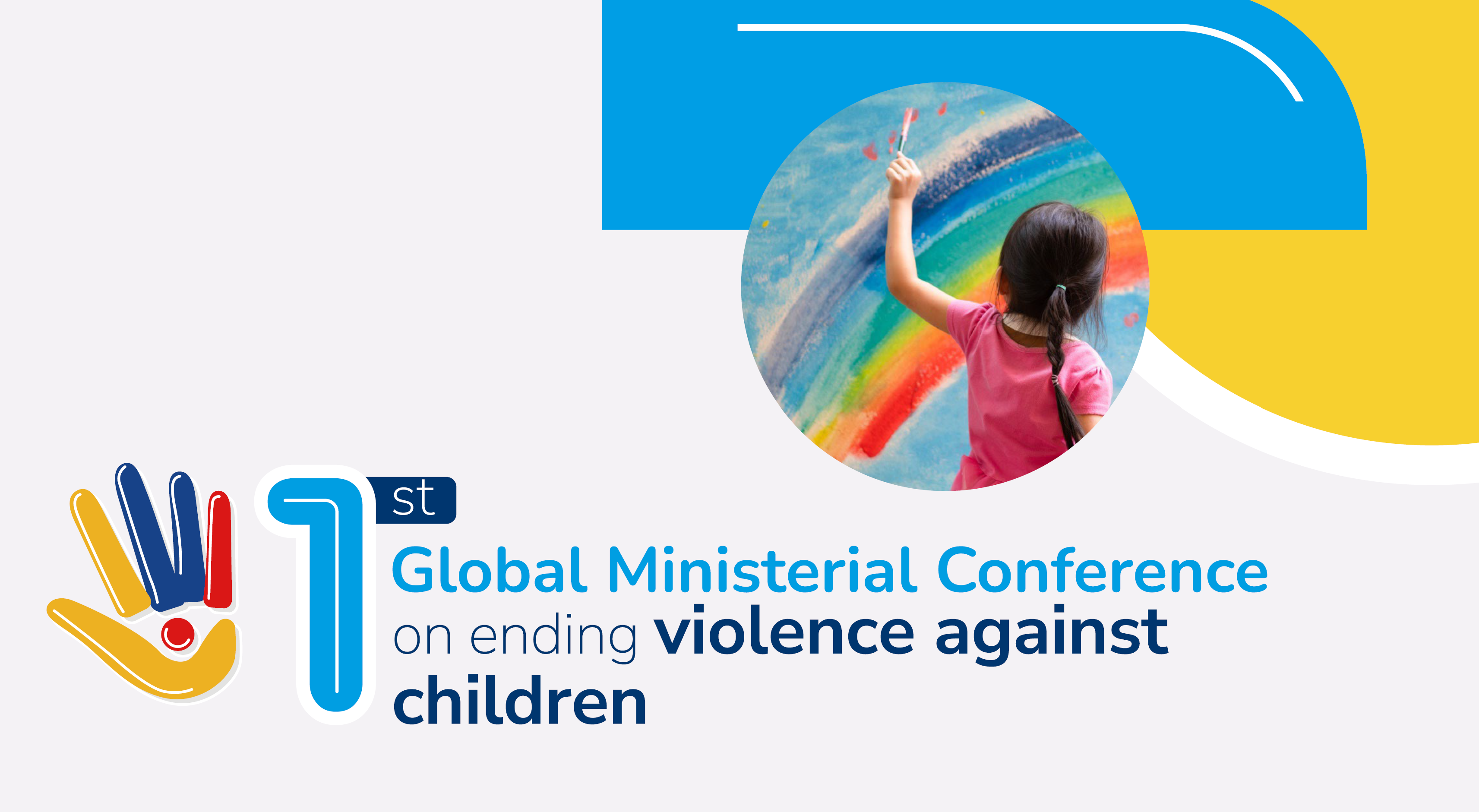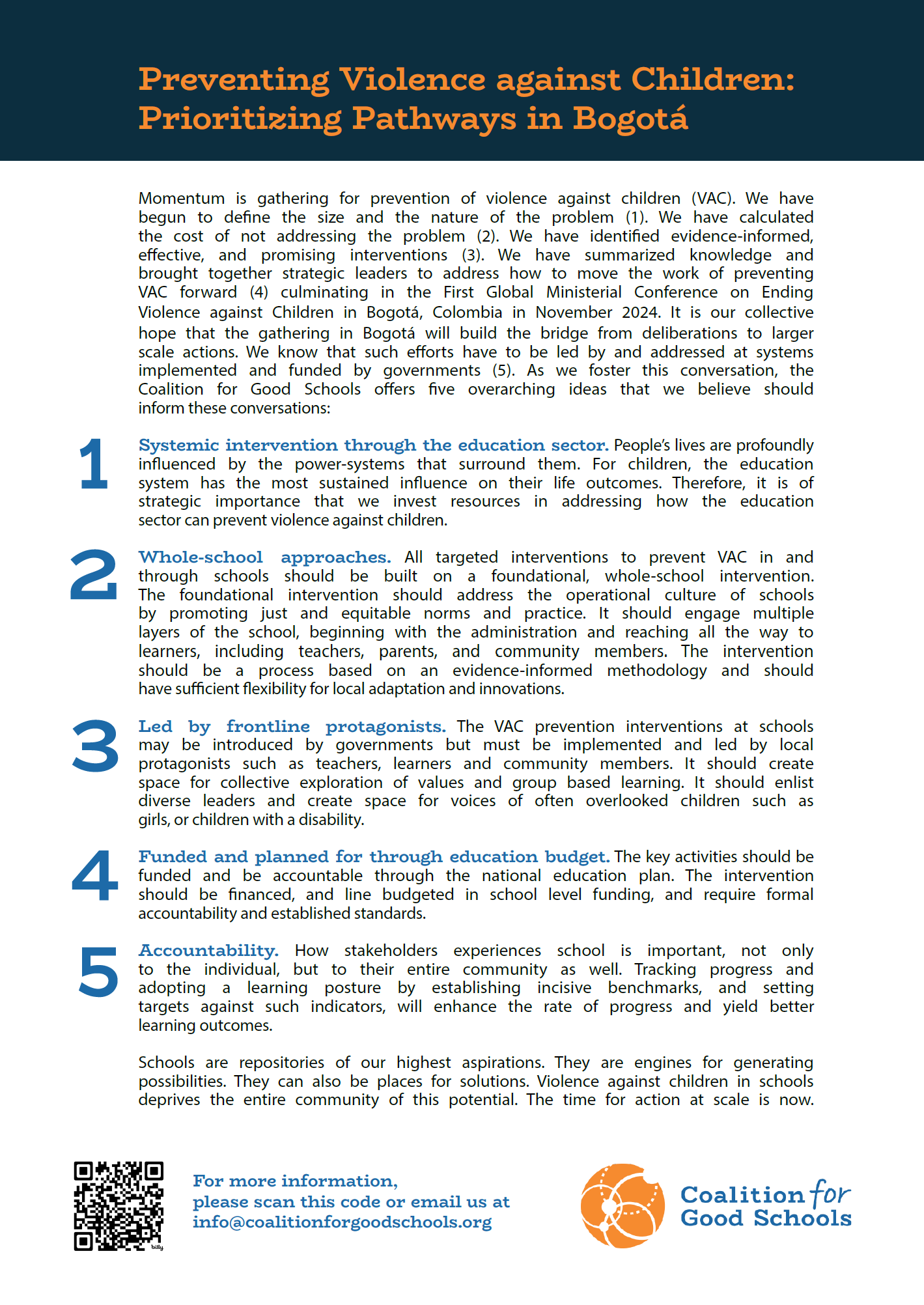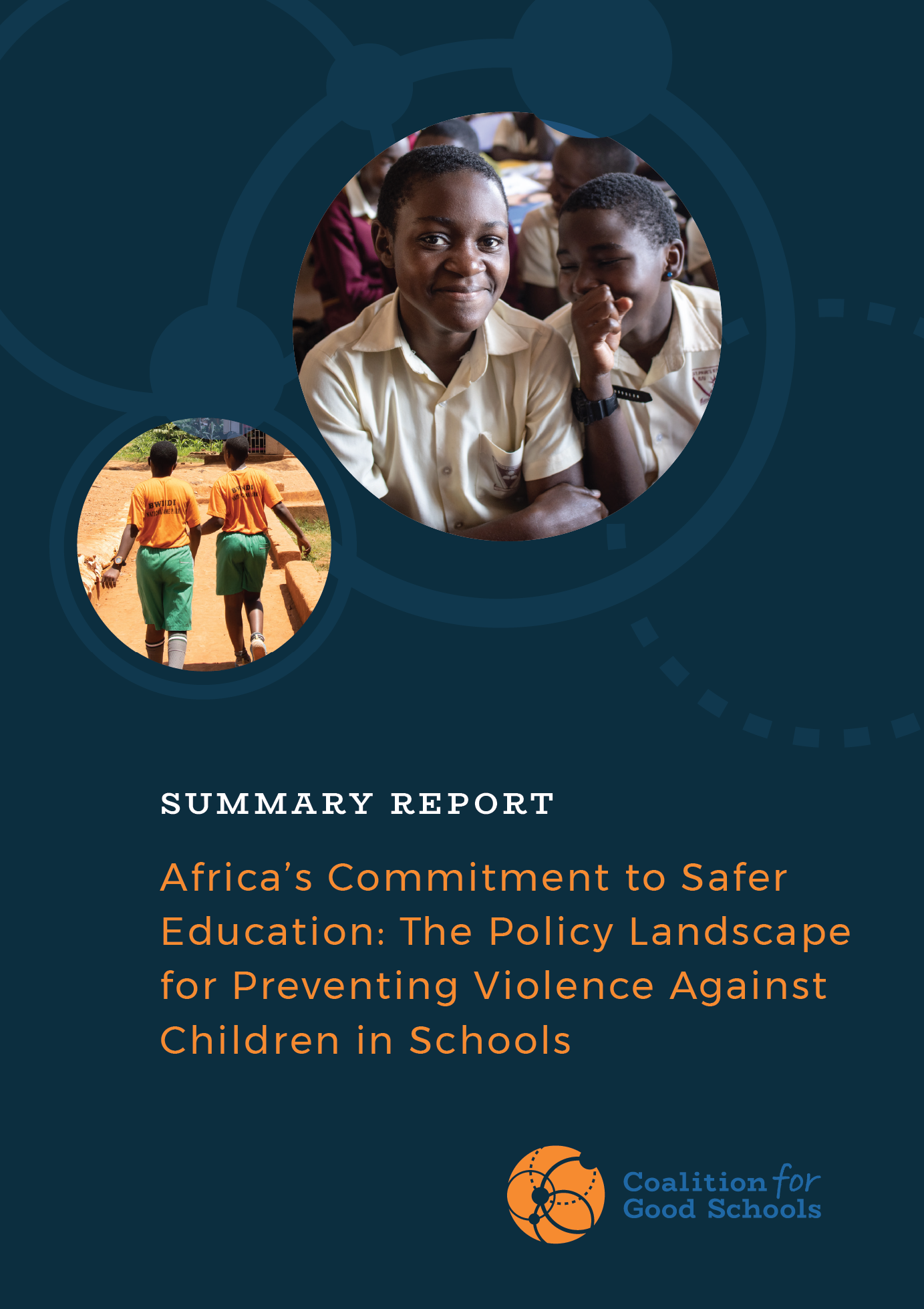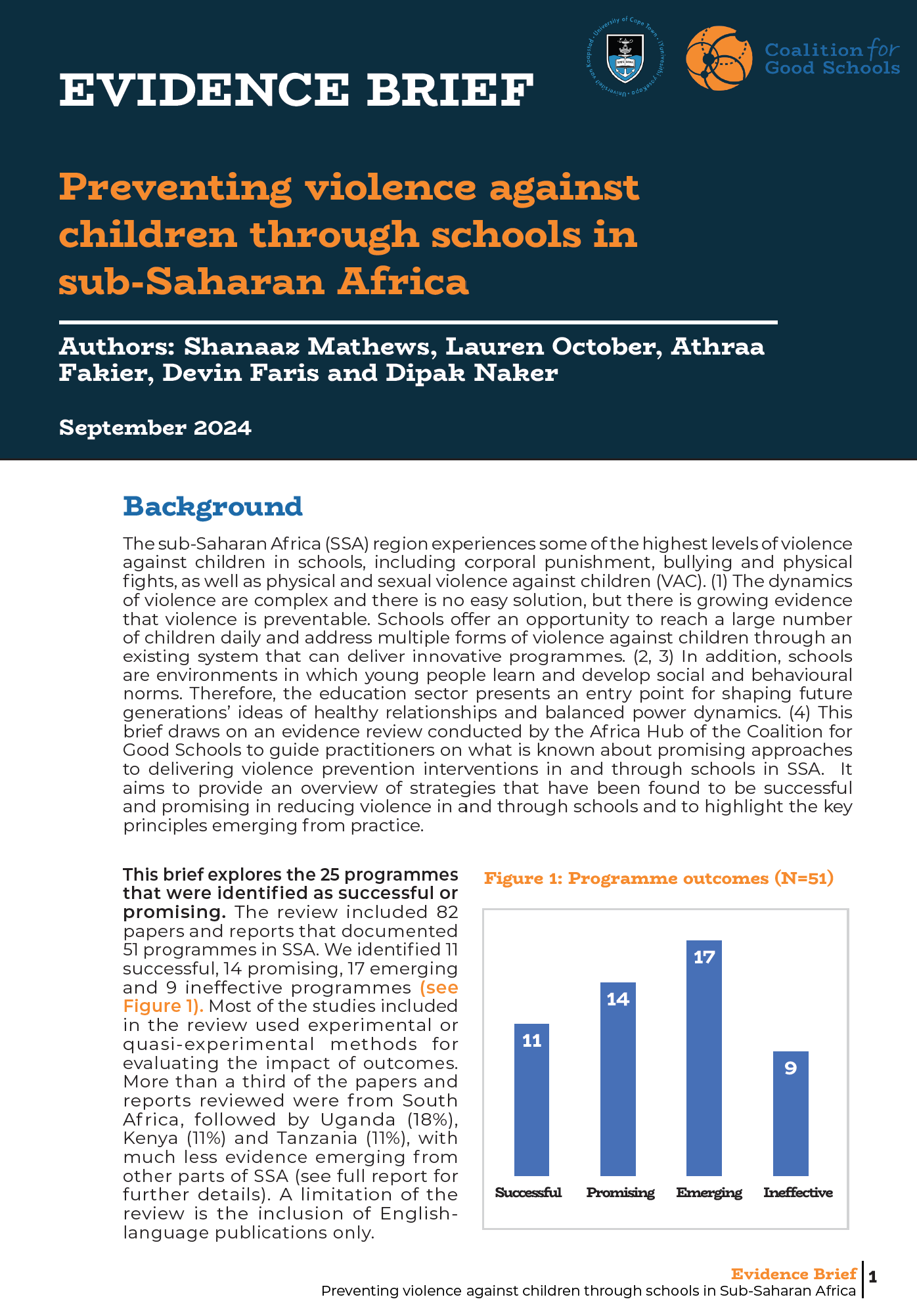The Coalition in Bogotá: Updates from the Global Ministerial Conference on Violence Against Children
The Coalition is in Bogotá, Colombia this week at the First Global Ministerial Conference on Ending Violence Against Children. Watch this page for our thoughts from the space and see our events below. You can also follow us on LinkedIn for live updates.
Our Key Engagements
Wednesday 6 November
1. “Ending Violence is Education’s Business Too: Galvanizing Cross-Sectoral Partnerships to End Violence in and through Education.”
Coalition for Good Schools with Safe to Learn, UNESCO and UNICEF.
14:00-17:00. Hilton Bogota Corferias. Click for more info. Click for registration.
2. “Africa’s Commitment to Keeping Her Children Safe”
African Partnership to End Violence Against Children (APEVAC) with Coalition for Good Schools, Safe to Learn, UNESCO and UNICEF.
11:00-13:30. Ágora Bogota Centro de Convenciones. Click for more info.
Day 1: Thursday 7 November
Official Side Event, “Safe & Enabling Education.”
Safe to Learn Coalition with the Coalition for Good Schools, UNESCO and UNICEF.
17.35-18.30. Salon NO.
Day 2: Friday 8 November
Parallel Session: “Safe & Enabling School Environments.”
Safe to Learn with the Coalition for Good Schools, UNESCO and UNICEF.
12:30-13:30. Room TBA.
Deliberations in Bogotá this week have reminded us that no system can claim equity when so many children are kept out of school due to the fear of violence, and when so many who do attend school accept that violence as a reality. No system claim equity when unequal gender and social norms are perpetuated through that system every day. This cycle of fear and violence perpetuates itself: boys who experience violence are more likely to be become perpetrators, while girls are more likely to become victims of further violence throughout their lives. If we are to cultivate more equal and just societies, this cycle must be broken.
Key Pathways for Preventing VAC in Schools
This Ministerial Conference is a testament to the role governments play in ending VAC in and through schools. Their commitments to this cause, amplified by global funding commitments to compliment state investments, are powerful tools for creating lasting change. Systematic interventions through the education system are essential for addressing this issue at scale.
We know how to prevent violence. We understand the interventions that work. These interventions must be strategically planned and funded through the education budgets to guarantee their integration into broader educational systems. By institutionalising these programmes and securing dedicated funding, we can ensure that efforts to protect children from violence are sustainable and far-reaching. Scaling these interventions requires strong and lasting partnerships with governments, where collaboration can tap into the resources and expertise needed to make a meaningful impact.
Government action, when rooted in a commitment to children’s safety and education, is a powerful catalyst for change, ensuring that every child can learn in an environment free from fear and violence.
The week in Bogotá made evident what we have known for so many years doing this work: involving teachers and learners as frontline protagonists in efforts to prevent VAC in schools is crucial for the success of any intervention. Research shows us that teachers feel unprepared to intervene in instances of violence, highlighting the need for better support and training. And while children should not be held responsible for their own protection, they need information on how violence can be prevented and responded to and need space to make inputs into what trauma-informed prevention can look like. Effective implementation requires their active and ongoing participation.
We also know that teachers themselves can be both victims and perpetrators of violence, making it essential to consider their unique experiences and challenges in program design. Given that teachers and learners share experiences of violence, and are all embedded within communities where harmful gender norms often perpetuate that violence, any meaningful approach must work with them to create lasting social change and ensure safer school environments for all.
Teachers – and teachers’ unions – are indispensable partners in designing policies that address VAC, as they possess the knowledge of the school environment and the dynamics of violence. Building off of this week’s commitments, these frontline champions must be an integral part to achieving the goals set out by governments.
The Coalition launched two briefs from our Africa Hub. The first maps existing policy on violence in schools in sub-Saharan Africa and offers recommendations on how to strengthen the landscape. The second unpacks five key strategies for effective programming to prevent violence in and through school settings.
Our Latin America Hub unpacked their “Si miedo en la escuela” series, showcasing six country reports on preventing violence against children in and through schools in Colombia, Argentina, Chile, Peru, Costa Rica and Mexico.
Visit the microsite and access these reports here.
Our key background reading going into Bogotá…
- Beginning with UN Secretary Generals’ Study on violence against children to Know Violence in Childhood’s comprehensive synthesis of the state of the field, we have assembled significant analyses of the problem. This Brief summarizes the state of this knowledge.
- The comprehensive analysis led by the World Bank and the Global Partnership to End Violence against Children paints a sobering picture, including the startling conclusion that the global economy will lose more than 11 trillion US dollars in life-time income as a result of violence against children in and around schools.
- See the INSPIRE package that summarizes key strategies and examples of evidence informed interventions that embody such approaches. See also our Evidence Review: Prevention of Violence against Children in and through Schools in the Global South for examples of evidence informed interventions that are successful or showing promise in their early stages.
- See also the key deliberations at Wilton Park in early 2024.
- See information on Pathfinding countries and the UN General Assembly’s resolution A/RES/73/155 that calls upon States to take all necessary action to protect children’s rights including prevention of all forms of violence against them. See also the crisp articulation of this case at www.justsystems.org.




